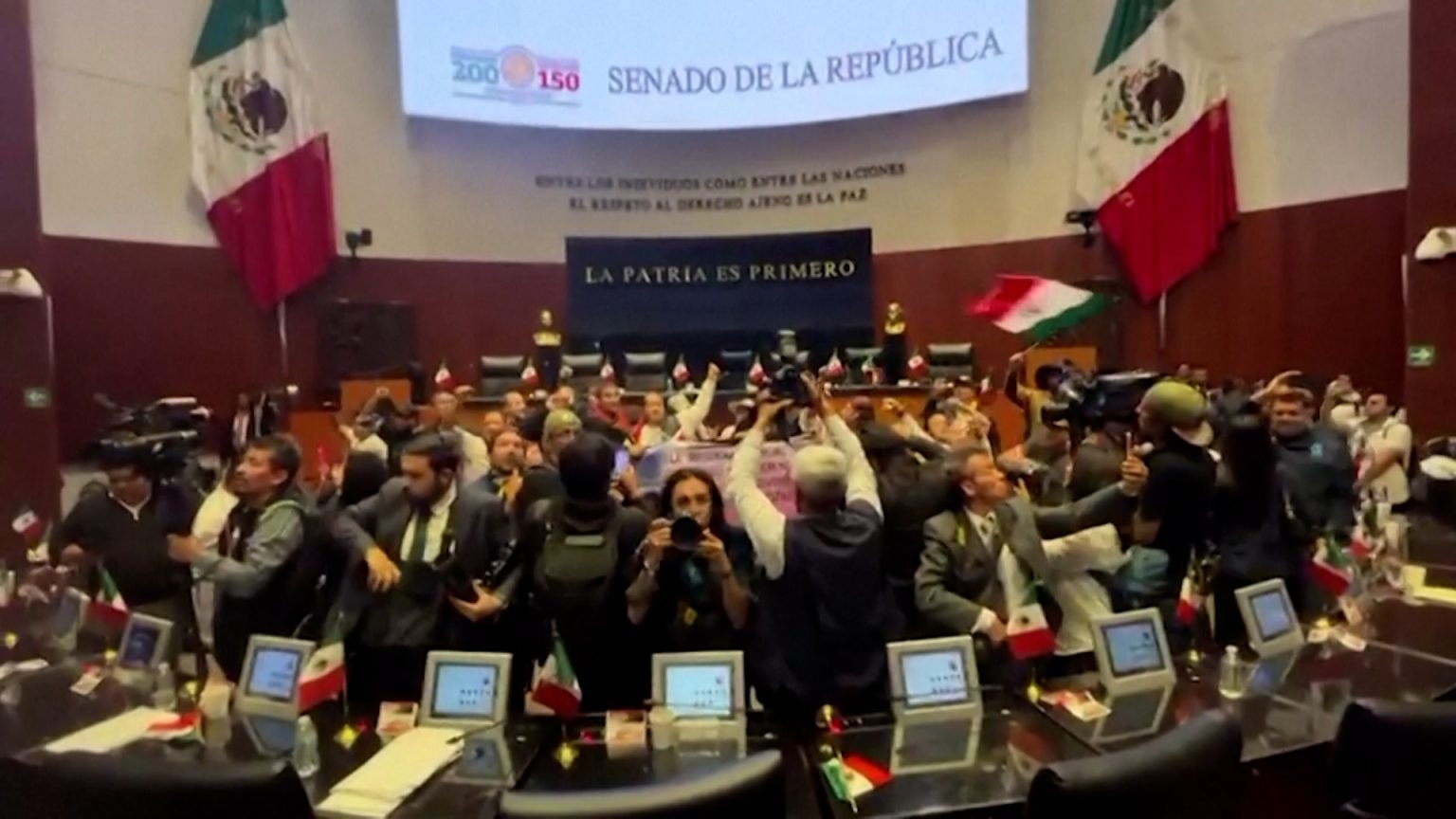On September 11, 2024, protesters in Mexico broke into the Senate building in opposition to proposed reforms to the justice system. The reforms in question aimed to change the way federal judges are selected, shifting from an appointment process to an election system. The controversial vote on these reforms was scheduled to take place on the same day as the protest, adding to the tension and uncertainty surrounding the issue. The protesters, motivated by their belief that the proposed changes would undermine the independence and integrity of the judiciary, took matters into their own hands by forcefully entering the Senate building.
The protesters’ actions underscored the deep divisions and strong opinions surrounding the proposed reforms to Mexico’s justice system. The shift to electing federal judges was a contentious issue, with critics arguing that it would open the door to political interference and undermine the impartiality of the judiciary. However, supporters of the reforms maintained that the change was necessary to increase transparency and accountability in the selection process, ultimately benefiting the Mexican legal system as a whole. The protest at the Senate building highlighted the passionate opposition to the reforms and the growing unrest among those who felt their voices were not being heard.
The events at the Senate building on September 11, 2024, brought attention to the ongoing debate over judicial reforms in Mexico. The protests served as a visible manifestation of the resistance to changes that some believe could have far-reaching consequences for the country’s legal system. The clash between protesters and authorities also raised concerns about the potential for further unrest and violence if the issue remained unresolved. As the scheduled vote on the reforms loomed, tensions continued to escalate, and the outcome of the Senate’s decision remained uncertain.
The protest at the Senate building reflected broader issues of governmental accountability and transparency in Mexico. The proposed reforms to the justice system were just one example of the push for change in a country grappling with corruption and inefficiency in its institutions. The protesters’ actions highlighted a growing frustration with the status quo and a demand for more responsive and accountable governance. The events on September 11, 2024, served as a reminder of the power of public protest in shaping political discourse and influencing decision-making processes.
The actions of the protesters in Mexico’s Senate on September 11, 2024, sparked a national conversation about the role of the judiciary and the importance of maintaining an independent and impartial legal system. The debate over the proposed reforms to the justice system forced Mexican citizens to confront fundamental questions about the balance of power and the integrity of their institutions. The protest served as a catalyst for discussions about the future of Mexico’s legal system and the need for reforms that uphold the principles of justice and democracy. As the country grappled with these complex issues, the events at the Senate building represented a crucial moment in Mexico’s ongoing struggle for a more just and equitable society.
In the aftermath of the protest at the Senate building, Mexico faced a critical juncture in its efforts to reform the justice system and address longstanding challenges in the country’s governance. The clash between protesters and authorities underscored the urgency of finding a resolution to the debate over the selection of federal judges and the broader issue of judicial independence. The events on September 11, 2024, served as a wake-up call for Mexican society, prompting a reevaluation of the country’s institutions and a renewed commitment to upholding the principles of democracy and justice. As Mexico moved forward, the lessons learned from the protest would shape the path toward a more transparent, accountable, and fair legal system for all its citizens.


